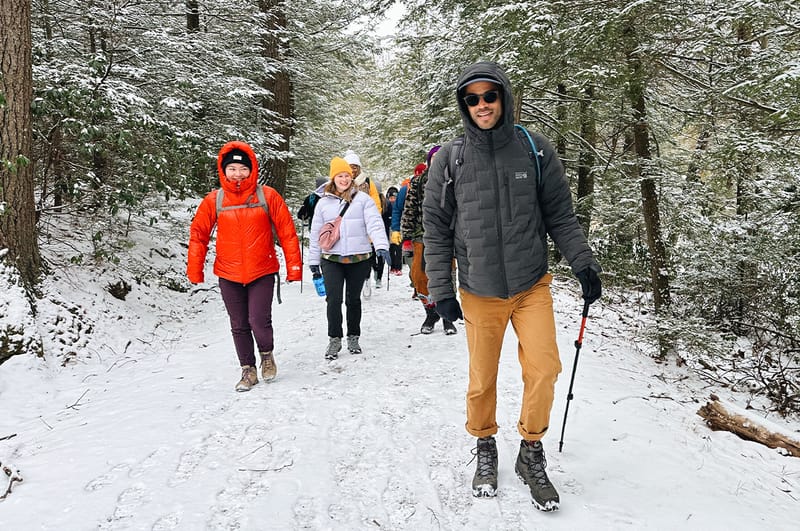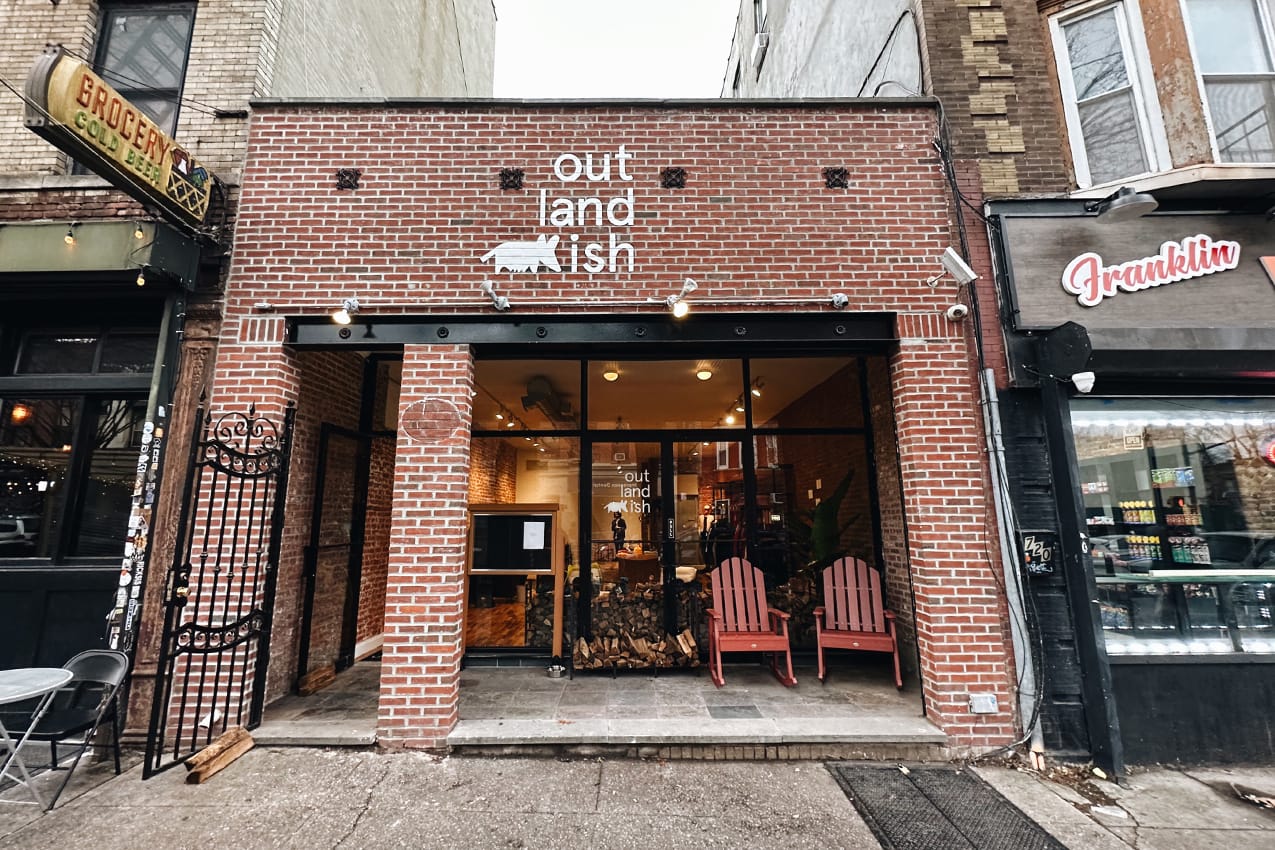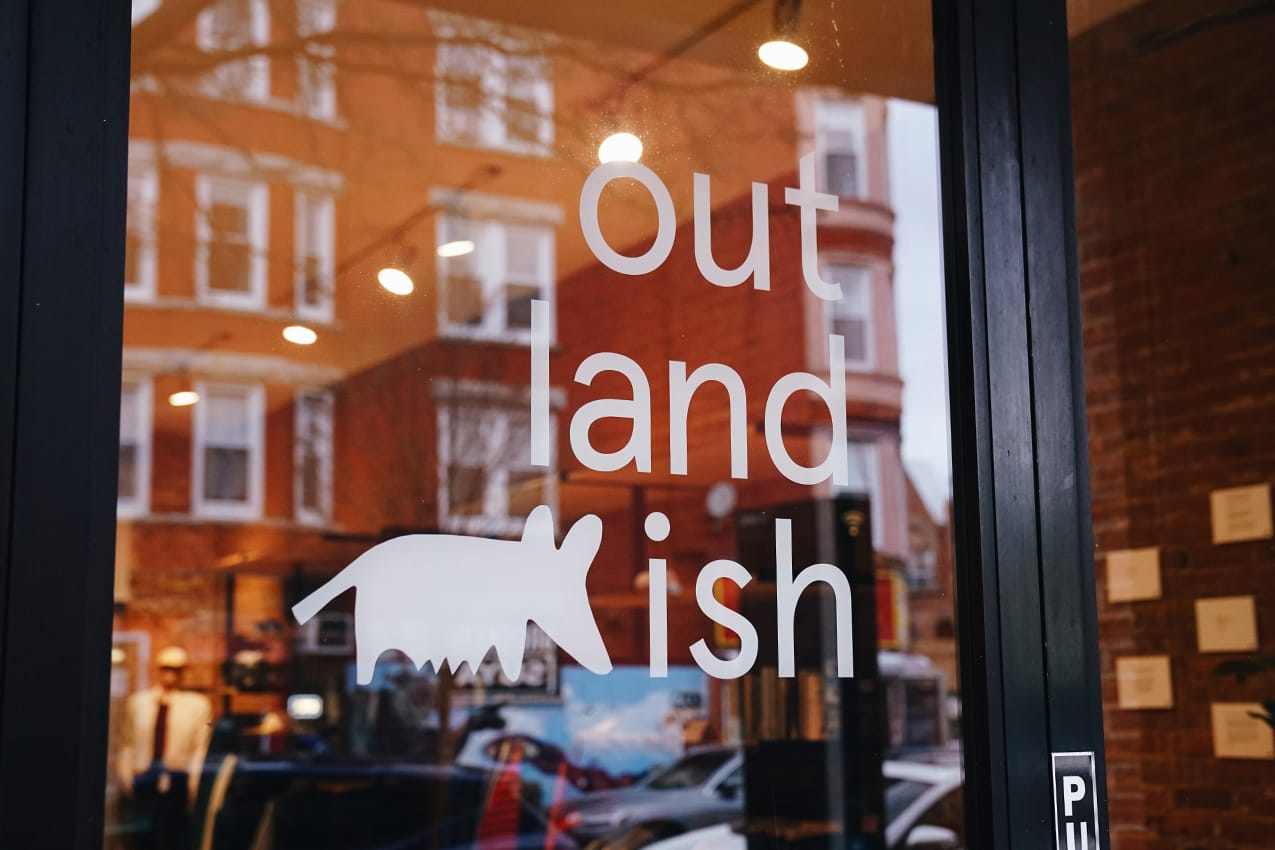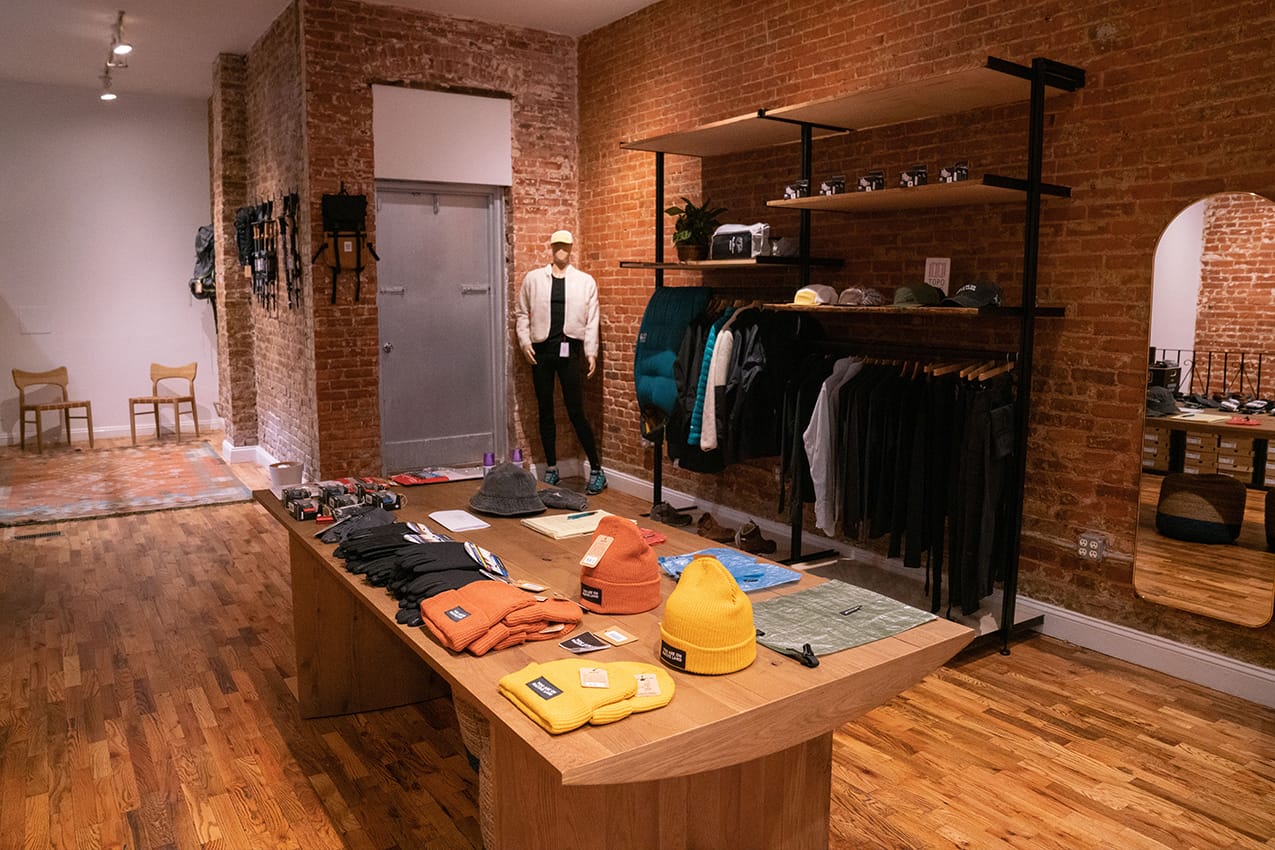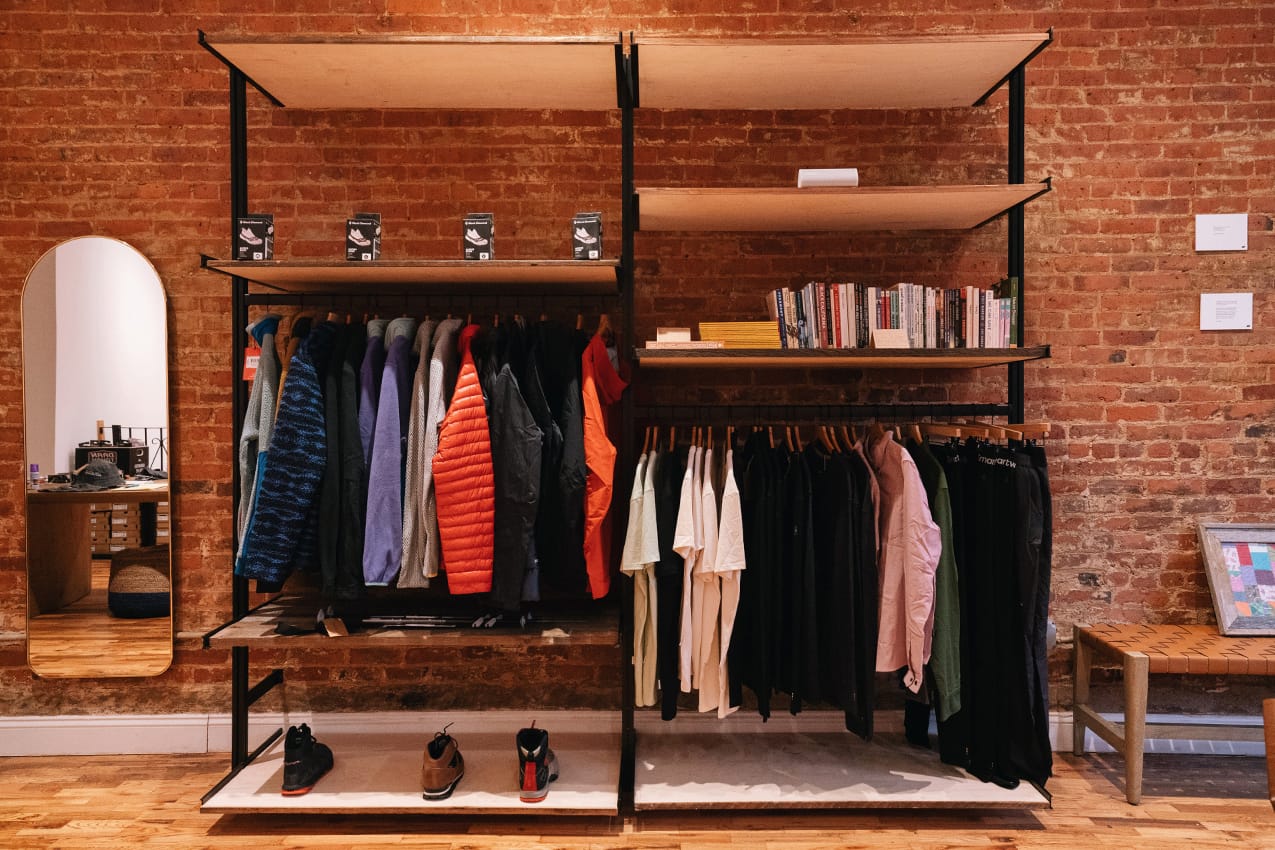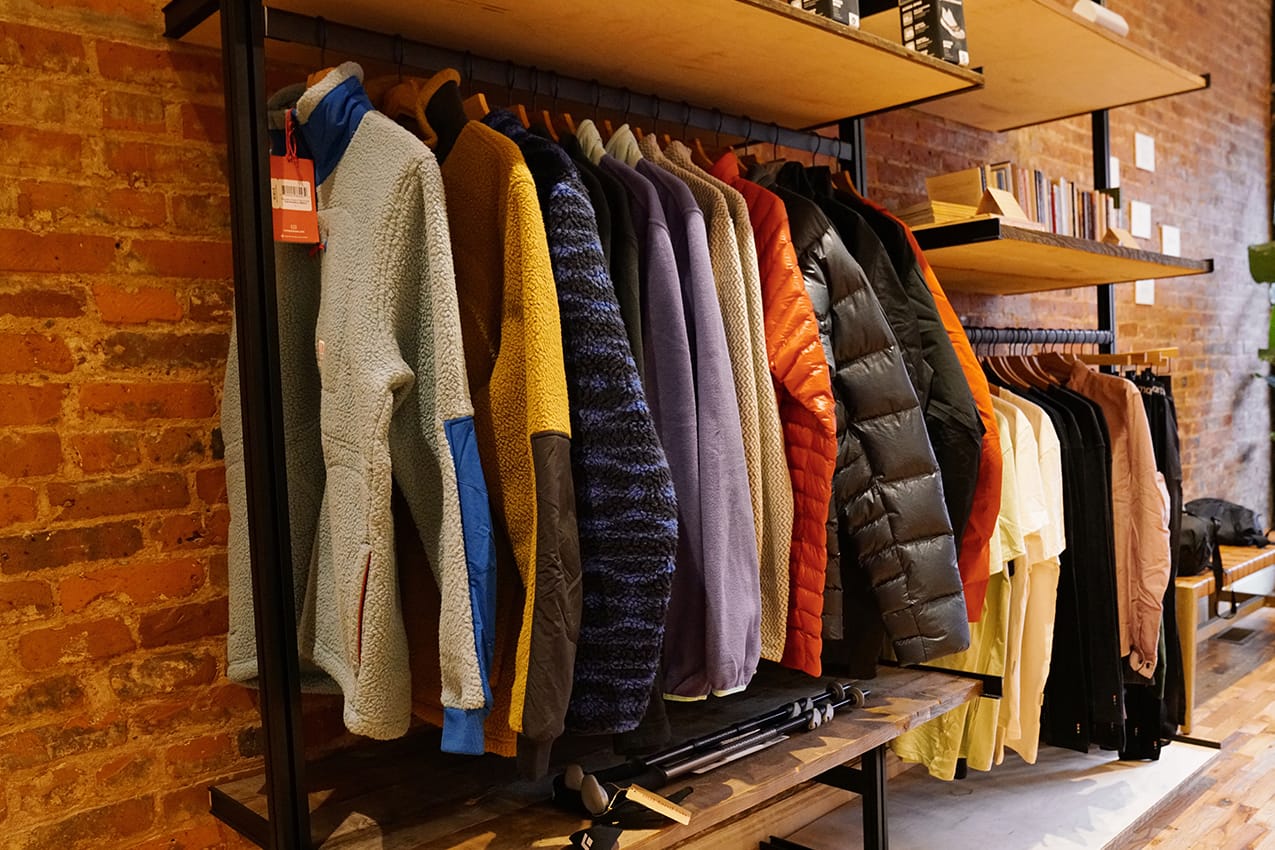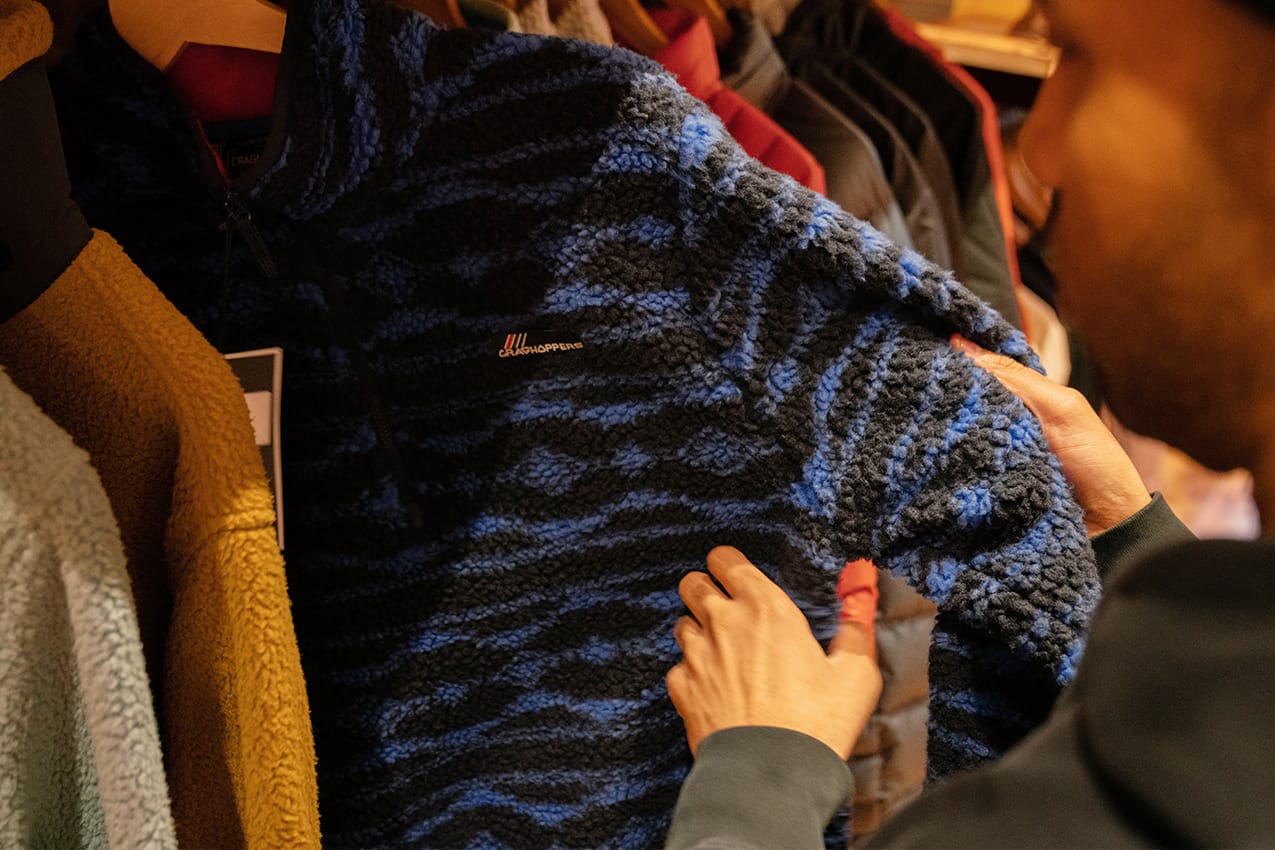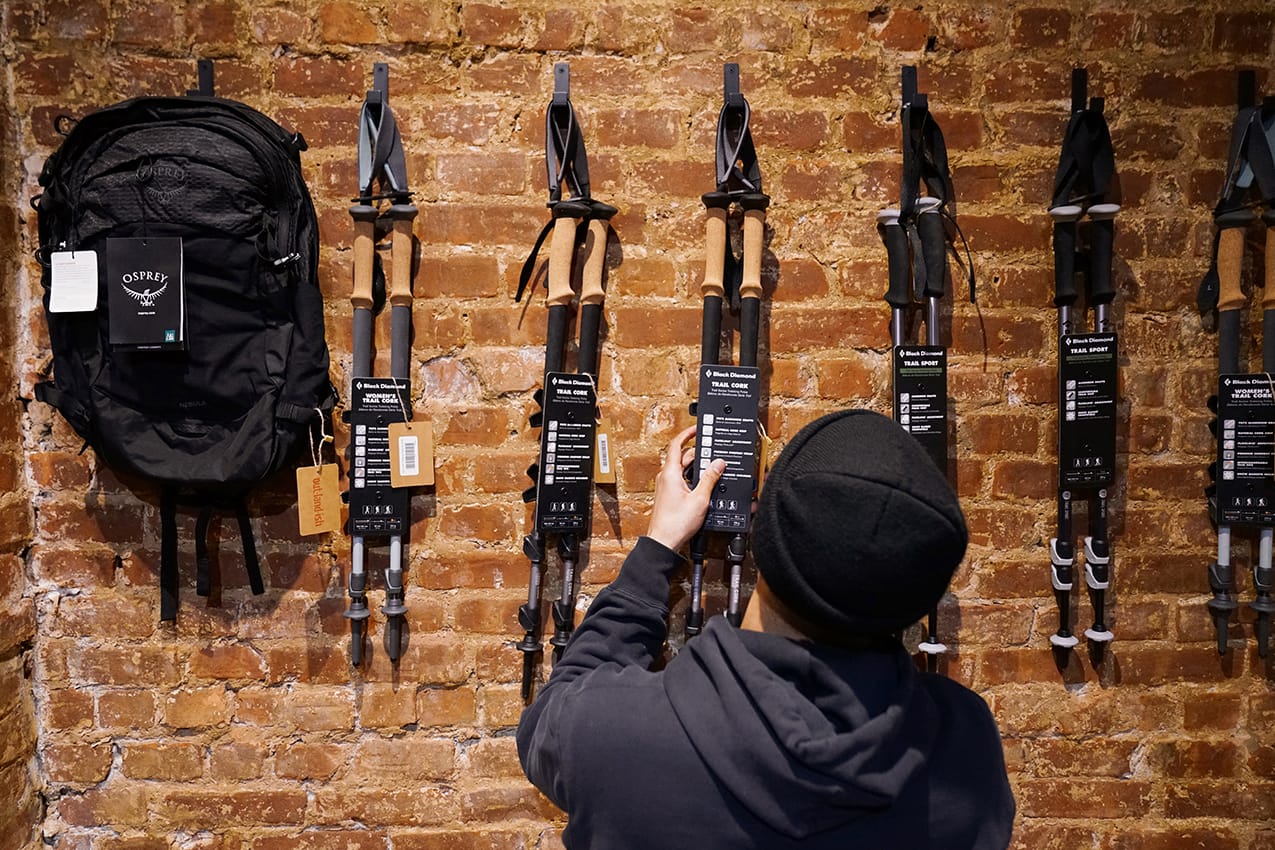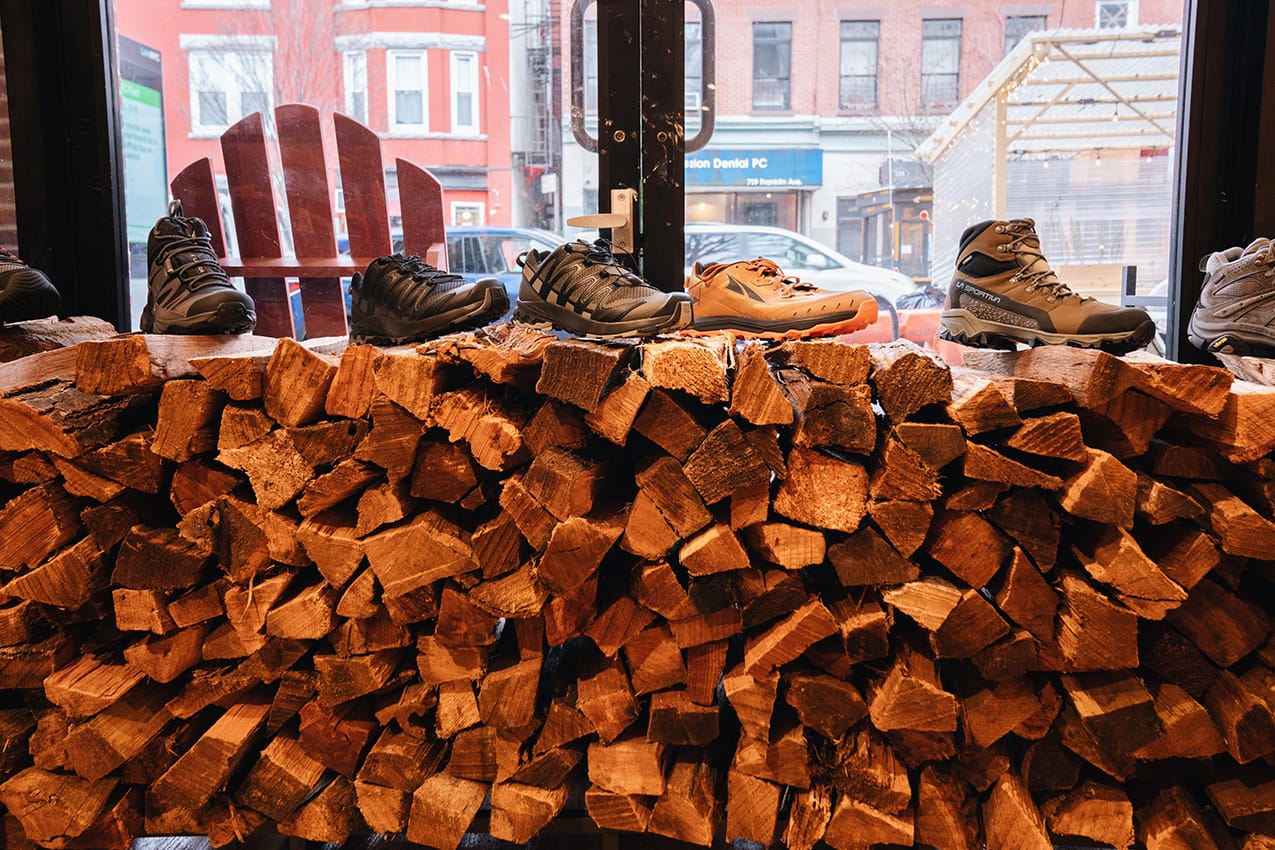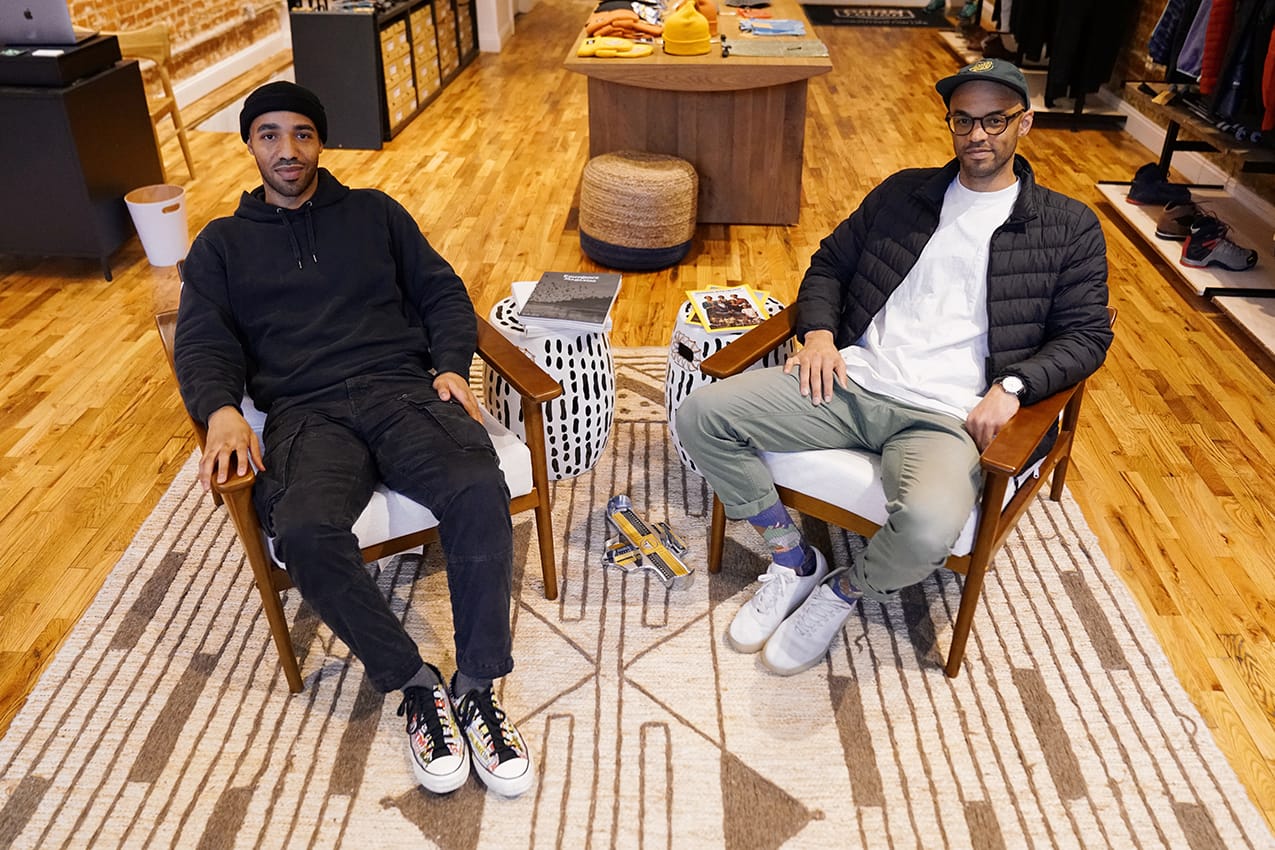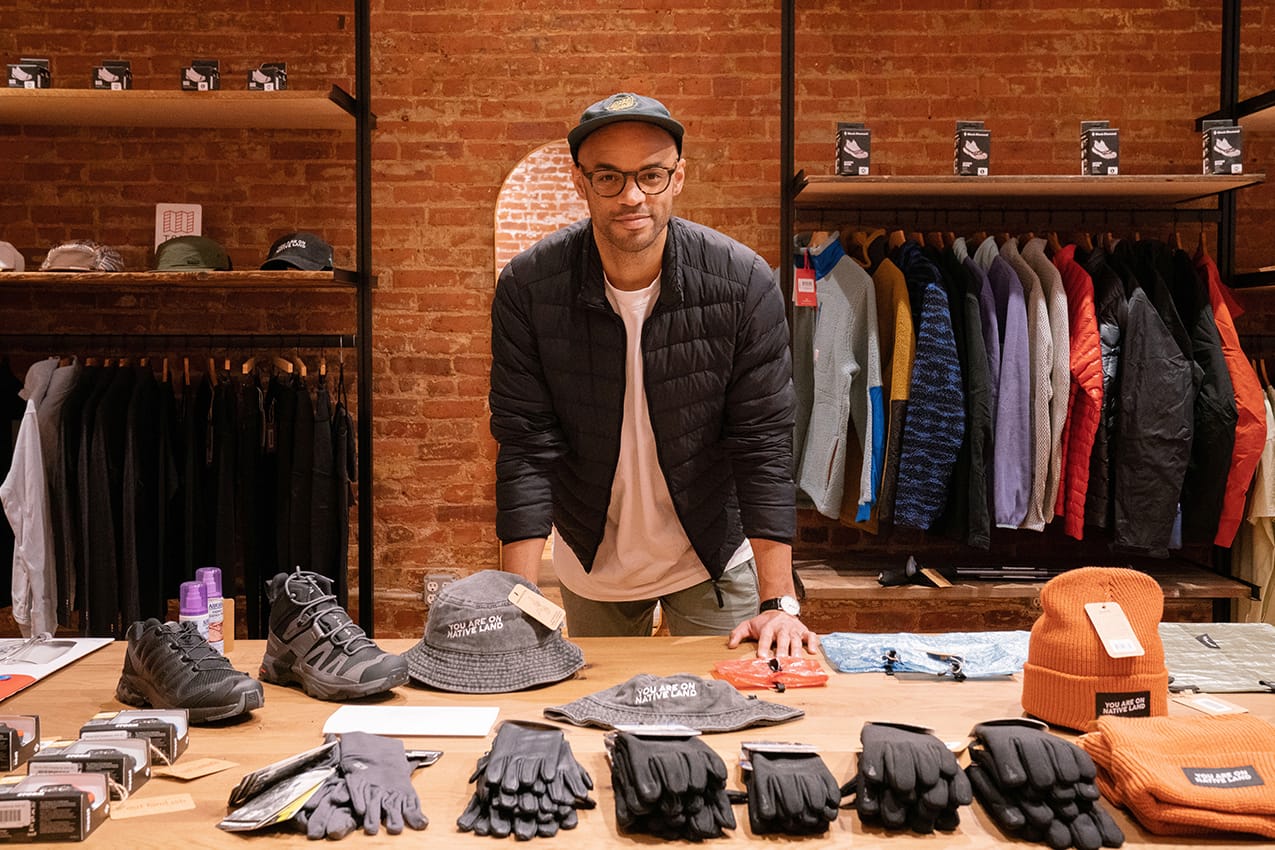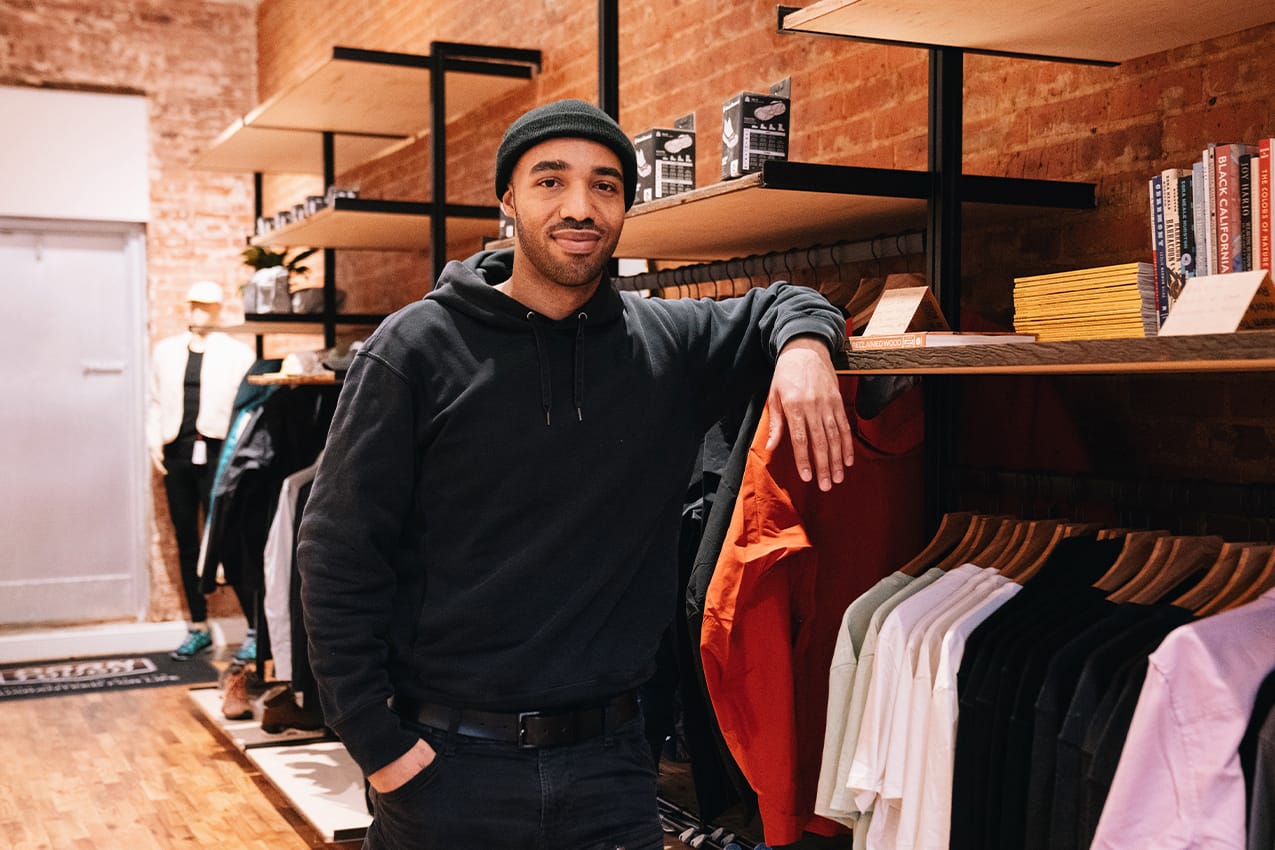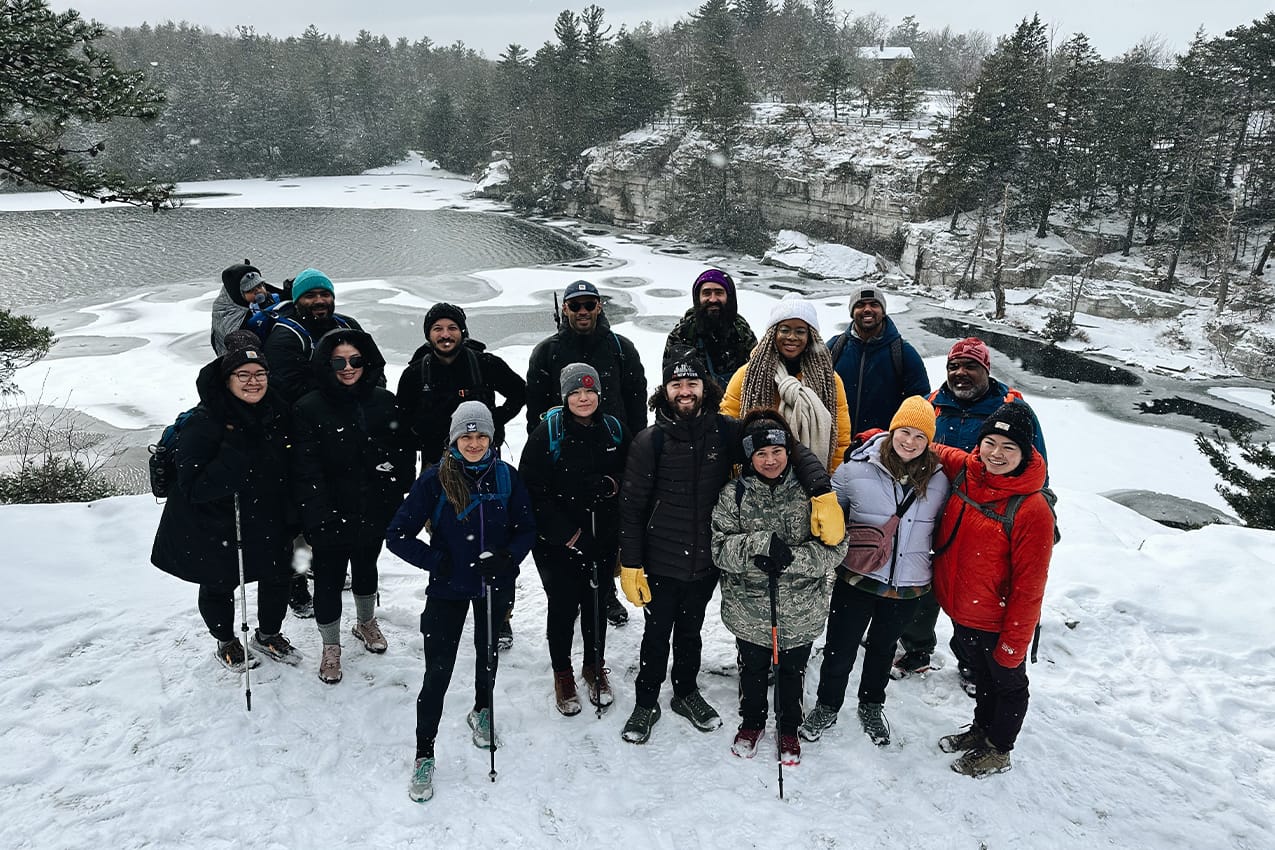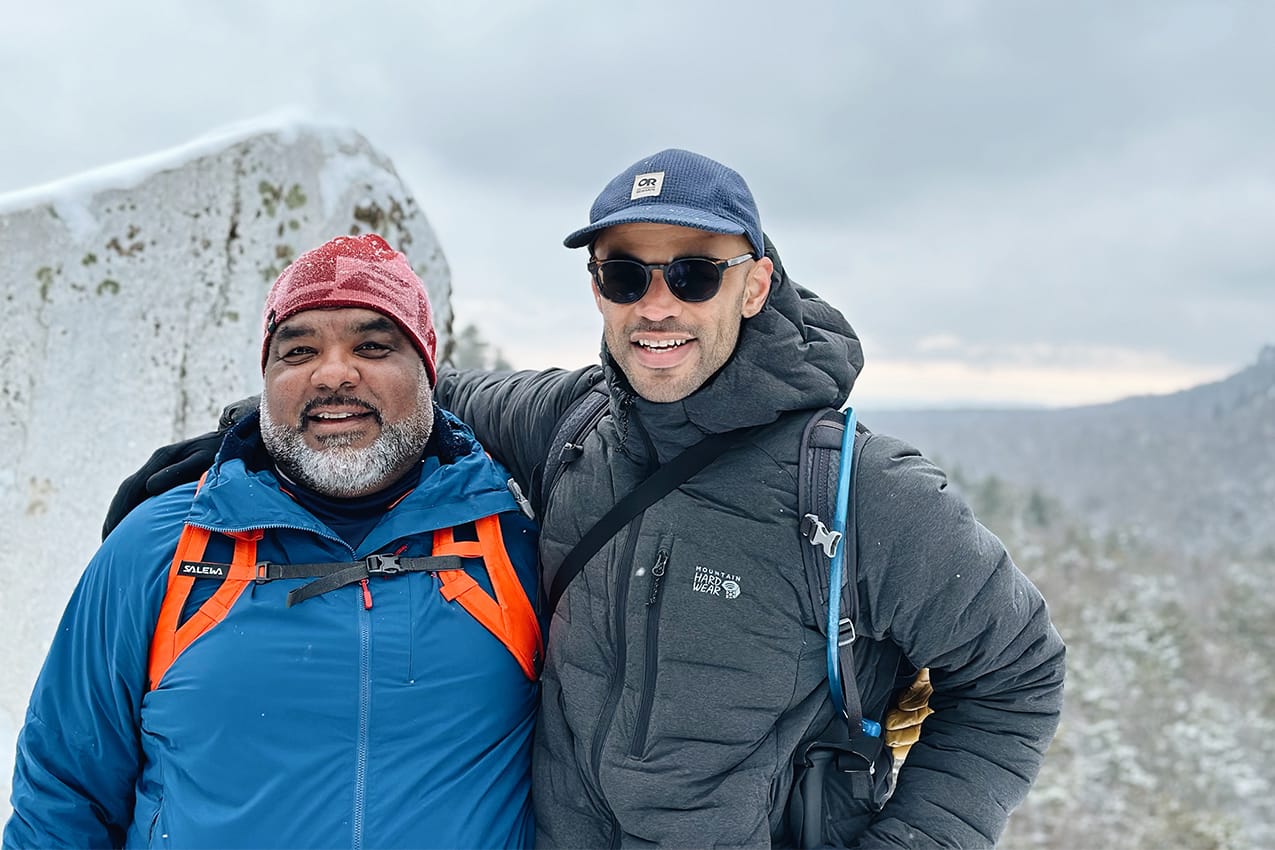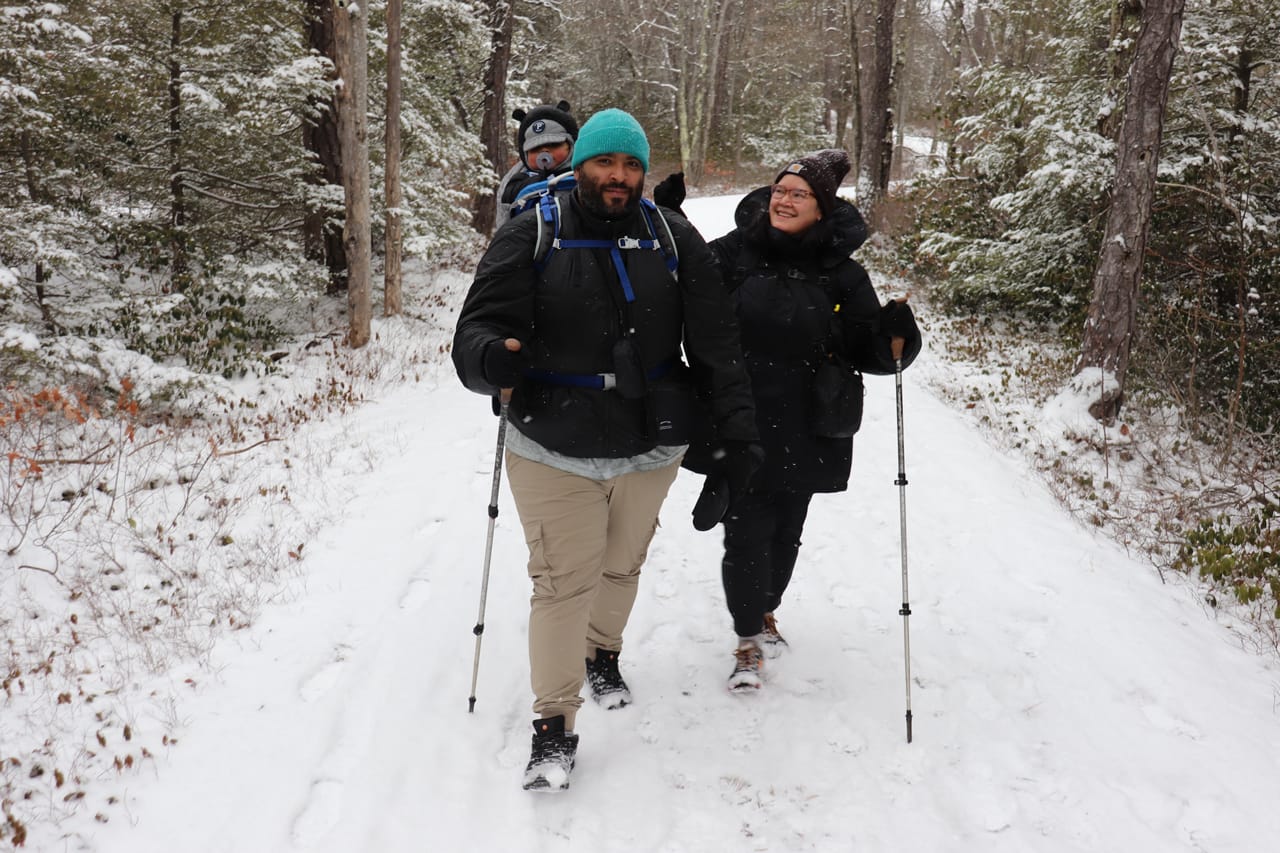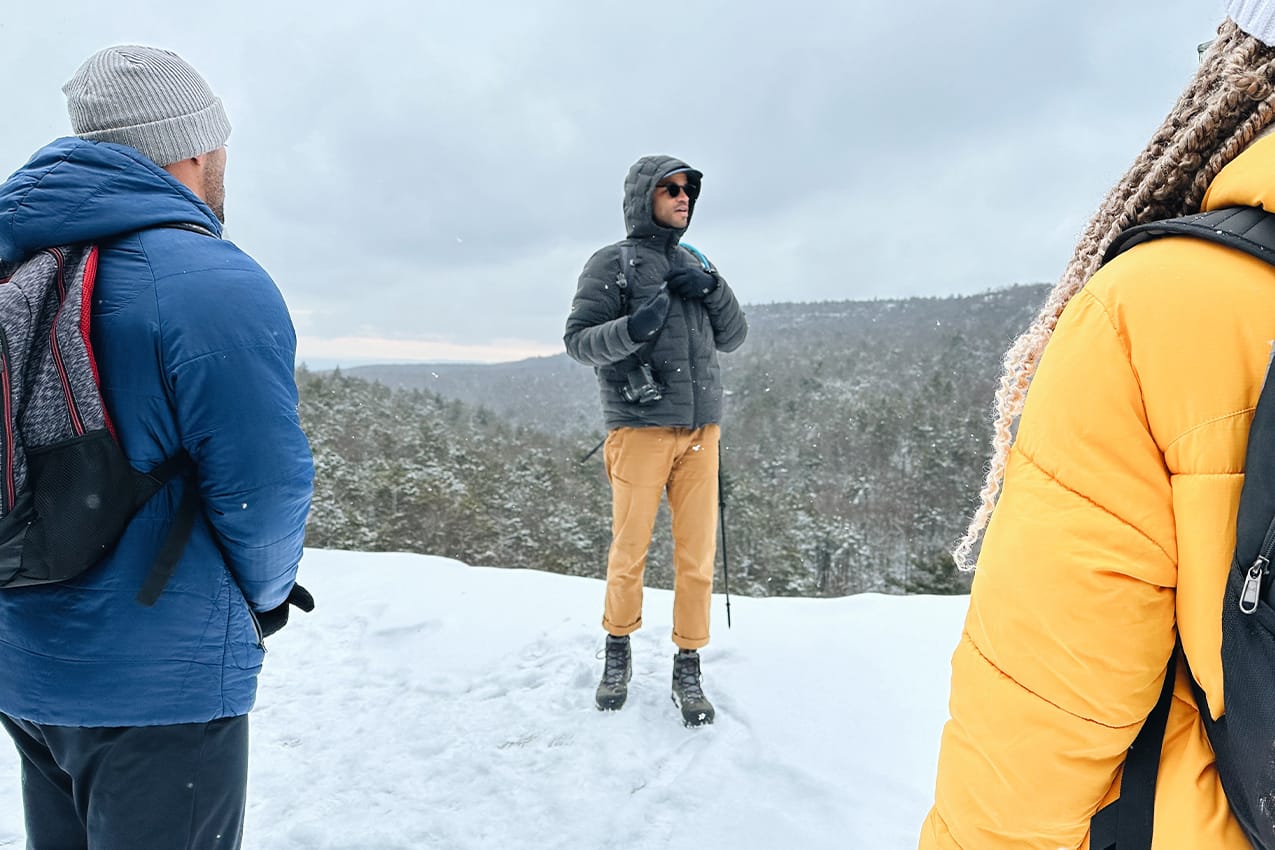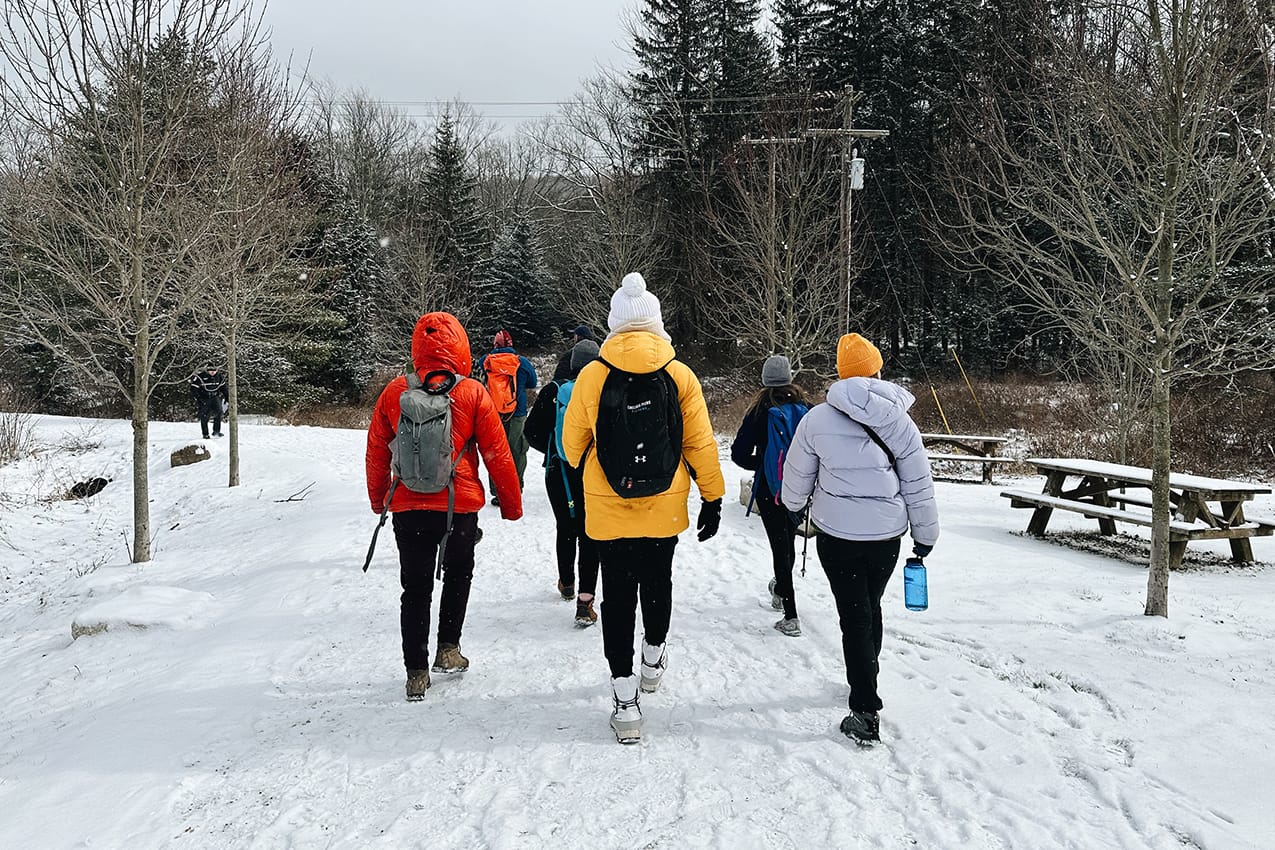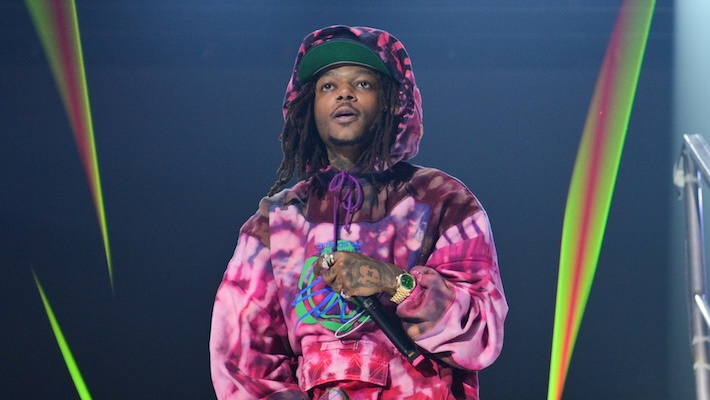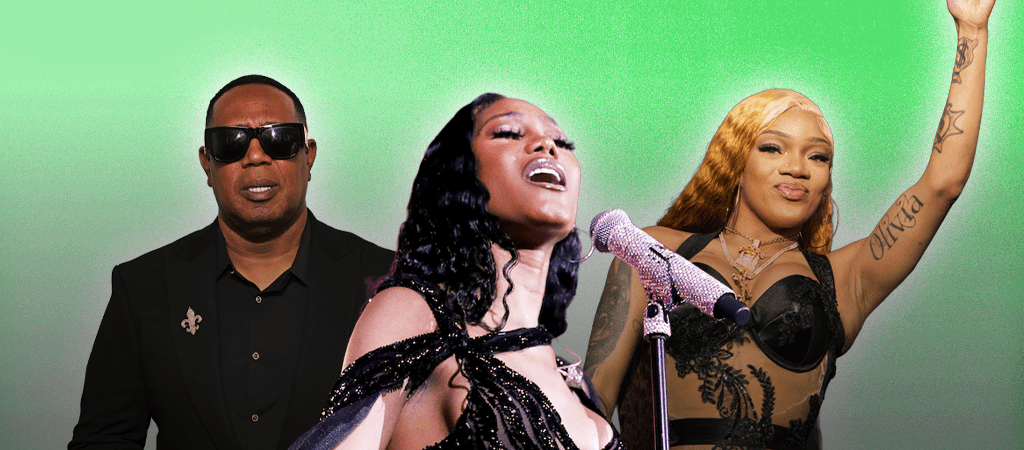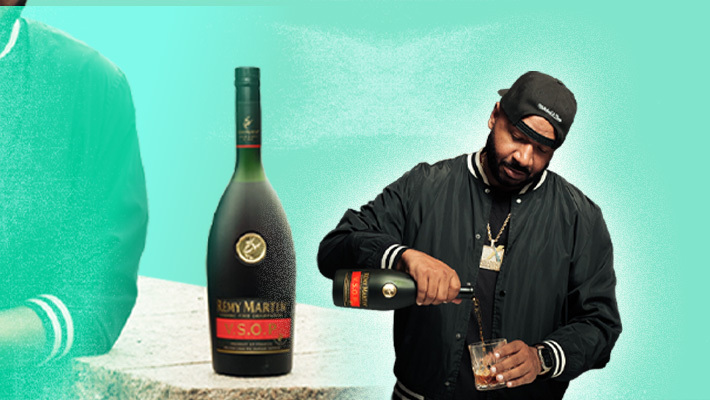“New York City is becoming outdoorsy as f*ck,†says Livo Melo, co-founder of allmansright, a Bronx-based brand known for its made-to-order side bags, gear containers and ultralight hiking backpacks. It might sound like Melo’s referring to gorpcore — the well-worn colloquialism for a stylistic movement that’s centered around wearing high-function clothing like Arc’Teryx shell jackets and Salomon sneakers. But in fact, he’s talking about city dwellers, especially people of color, becoming more comfortable with venturing into the great outdoors. Proof of Melo’s stated concept? We’re in a van, with a dozen other NYC residents, on the way back from a hike in the Shawangunk Mountains — a little more than two hours north of the Big Apple.
The hike was organized by Outlandish, a Black-owned retailer that just opened in Brooklyn’s Crown Heights neighborhood and proudly bills itself as “Brooklyn’s first hiking store.†Stumbling across Outlandish is a pleasant system shock thanks to the juxtaposition of an outdoor goods store in an urban enviroment. Outlandish is located on Franklin Avenue, in the middle of a bustling block full of other local businesses. Spend an afternoon in the store and you’ll witness its gravitational pull, as curious customers wander in to browse the selection of camping and hiking gear. You can practically see the questions written on their curious faces: “A hiking store? In Brooklyn?â€
Outlandish only opened its doors a few months ago, but has already piqued the curiosity of its community — quickly becoming part of a richly diverse network of Black-owned outdoor gear stores, hiking clubs and brands. It was co-founded by Benje Williams, the former CEO of a forest restoration startup, who has a stated goal of making the outdoors more accessible to people of color, especially Black people. “Outlandish wants to help people reconnect to the outdoors, and, hopefully, feel more whole and connected to something larger than themselves in the process,†says Williams.
Outlandish may have a unique geographical location for an outdoor goods store, but Williams and founding team member Ken Bernard, a former team lead at REI, will quickly let you know something that’s significantly more mind-boggling: Outlandish is only the fourth Black-owned outdoor gear store in the USA — joining Slim Pickins Outfitters in Stephensville, TX, Intrinsic Provisions in Hingham, MA and Wheelzup Adventures in Cumberland, MD — though there are over 4,700 outdoor retailers in total across the USA.
Four out of 4,700 is less than one-tenth of one percent, and this lack of representation carries over to many outdoor spaces. In 2019, just 23% of visitors to the USA’s 419 national parks were people of color — despite the fact that in that same year, people of color made up 42% of the country’s population. “The outdoors isn’t often considered a place that’s welcoming to people of color,†says Williams. “However, it’s supposed to be somewhere that anyone can go, and people of color, especially Black people, have such a long relationship with it.â€
The outdoor industry had been headed for a reckoning over the past several years, and that moment was accelerated when the COVID-19 pandemic turned the world upside-down in 2020. As more and more people turned towards the outdoors for relief, adventure and an escape from being cooped up at home, people of color began taking up space in areas that had historically been hard for them to access due to geography or antiquated, racist societal norms. This led to both steps forward in equity (the formation or expansion of Black-led outdoor groups like London’s Flock Together, New York’s The Hood Hikers and the greater US’ Outdoor Afro) and painful moments that showed how far the industry still had to go (Amy Cooper, AKA “Central Park Karen†calling the police on Christian Cooper, a Black birder, or, for a close-to-home example, the underlying discomfort Williams experienced while on a backpacking trip with his father, chronicled for Backpacker).
“It stands to reason that as the outdoors become a little more accessible, people of color are going to have a greater influence on the outdoors industry,†says Mark Boles, the founder of Intrinsic Provisions (the US’ second Black-owned outdoor gear shop) and an advisor on the Outlandish board. “The outdoor industry is slowly waking up to the fact that it won’t continue to grow unless it has a bigger and more inclusive tent.â€
“The legacy outdoors customer and the new outdoors customer are vastly different.â€
As this paradigm shifts, Boles sees the importance of community in the outdoors becoming more apparent. “If you go back and look at outdoor ads from 15 years ago, a lot of them are essentially nature-themed versions of the Marlboro Man, showing images of a white male, solo, who’s summited a mountain or is in the middle of a grueling hike,†he notes. “Now, though, the outdoors are shifting toward a more community-focused mentality, and though the industry is not opposed to that they’re definitely not used to it either. The legacy outdoors customer and the new outdoors customer are vastly different.â€
The “new†outdoors customer that Williams, Boles and Melo all serve is focused on community, diversity and shared love. They might be a veteran of the outdoors, or they might be on their first-ever hike, but they’re seeking a sense of belonging, of community, of freedom, and of being one with nature. Williams notes that Lucille Clifton, the former Poet Laureate of Maryland, a two-time finalist for the Pulitzer Prize in poetry and an upstate New York native touches on this feeling in one of her works: “I turned/and made my way back/to this wilderness/where we know where we are/what we are.â€
Stores like Outlandish and Intrinsic Provisions along with brands like allmansright are fighting an uphill battle to serve this customer. They’re part of an industry that can be prohibitively expensive and is largely controlled by giant retailers like REI and Dick’s Sporting Goods. Boles aptly describes changing this industry as “generational work.†However, there’s strength in numbers and strength in community. The connective tissue that binds these businesses together also helps them service their customers in a way that a larger retailer simply can’t.
Williams and Bernard note that Outlandish doesn’t carry the same amount of inventory or move quickly to discount items like a mgea-store does — their advantage is a carefully-curated selection and personal service. “The small, minority-owned brands we carry like allmansright might get drowned out at a retailer like REI because they have 10,000 items there, but we can really tell that brand’s story, share what’s important and unique about what we carry and help our customers establish a meaningful relationship with our products,†says Williams.
“We just want our customers to feel comfortable and confident. Knowing the full story behind every product helps with that, and helps people feel accepted,†adds Bernard, who manages the space. He also notes that what’s viewed as a status symbol is changing, both in and outside the city: “It’s pretty cool that you see Salomon on Franklin Avenue, and if you take a weekend hike in the Hudson Valley you’ll see it there too.â€
Boles, for his part, notes that smaller businesses can also provide a level of personalized info and conversation that’s lacking at larger retailers. “Sure, I’d love for you to buy something at Intrinsic Provisions — it is a business after all — but we’re always glad to give you advice on where you’re going, or tell you about the area’s history. If there’s a story to be told, we’ll tell it. That’s another way we can serve our community.â€
Again, there’s that omnipresent noun: community. It’s the soul of the stores, the brands and the organizations that are driving the outdoors in a more equitable direction. In modern society, it’s been bastardized, often used as a marketing buzzword with little to no real meaning. But to the outfits that are trying to push the outdoors in a more accessible direction, it’s everything.
“People of color have been on the margins [of the outdoors world] for so long, so we need to support each other.â€
“People of color have been on the margins [of the outdoors world] for so long, so we need to support each other,†says Williams, pointing out that the four Black-owned outdoor stores in the US check in as a group once every six weeks, sharing tips, tricks and stories. Boles notes that minority hiking groups like the aforementioned Outdoor Afro as well as Tri-State Hikers and Black Girls Hike provide a “come-as-you-are†atmosphere devoid of the need for extensive experience or high-tech gear, which also draws a more diverse audience to the outdoors.
For these outfits, going outdoors is about reclaiming space, but also about doing it as a group, learning and growing together. It’s a shared experience — new for some, old for others — but one that is best experienced together. On Outlandish’s group hike in the Shawangunk Mountains, Williams’ proof of concept was evident. Of the roughly 15 hikers attending, more than half were women and more than two-thirds were people of color. One hiker said it was the first hike she’d ever been on, while another confessed to not feeling comfortable in the outdoors in the past.
Nevertheless, being around a diverse group of individuals, far away from the hustle and bustle of New York City was clearly a therapeutic experience for many of the participants. There’s a long way to go and many harmful stigmas that still need to be broken to make the outdoor industry more inclusive, but this ray of hope was proof of concept for Outlandish’s mission. “This outdoor industry sh*t ain’t great if you’re not getting out in the wild. You need that energy, you need to experience it for yourself,†says Melo with a hearty laugh, his young son bouncing happily in a baby sling on his back and his wife/AMR co-founder Jennifer Jacobsson by his side. The hike wasn’t a one-time thing either: Outlandish aims to continue championing this inclusivity with bi-weekly hikes, a book club focused on Black authors who write about nature and more, including their community every step of the way.
If Outlandish can make the outdoors a slightly more open, welcoming place, then Williams will be happy. “There’s a movement going on, and we’re here to support it,†he says. “We’re trying to be a part of the wave instead of just the surfer.â€
Outlandish is located at 722 Franklin Ave in Brooklyn. It’s open from 12 PM to 7PM Wednesday-Sunday.
